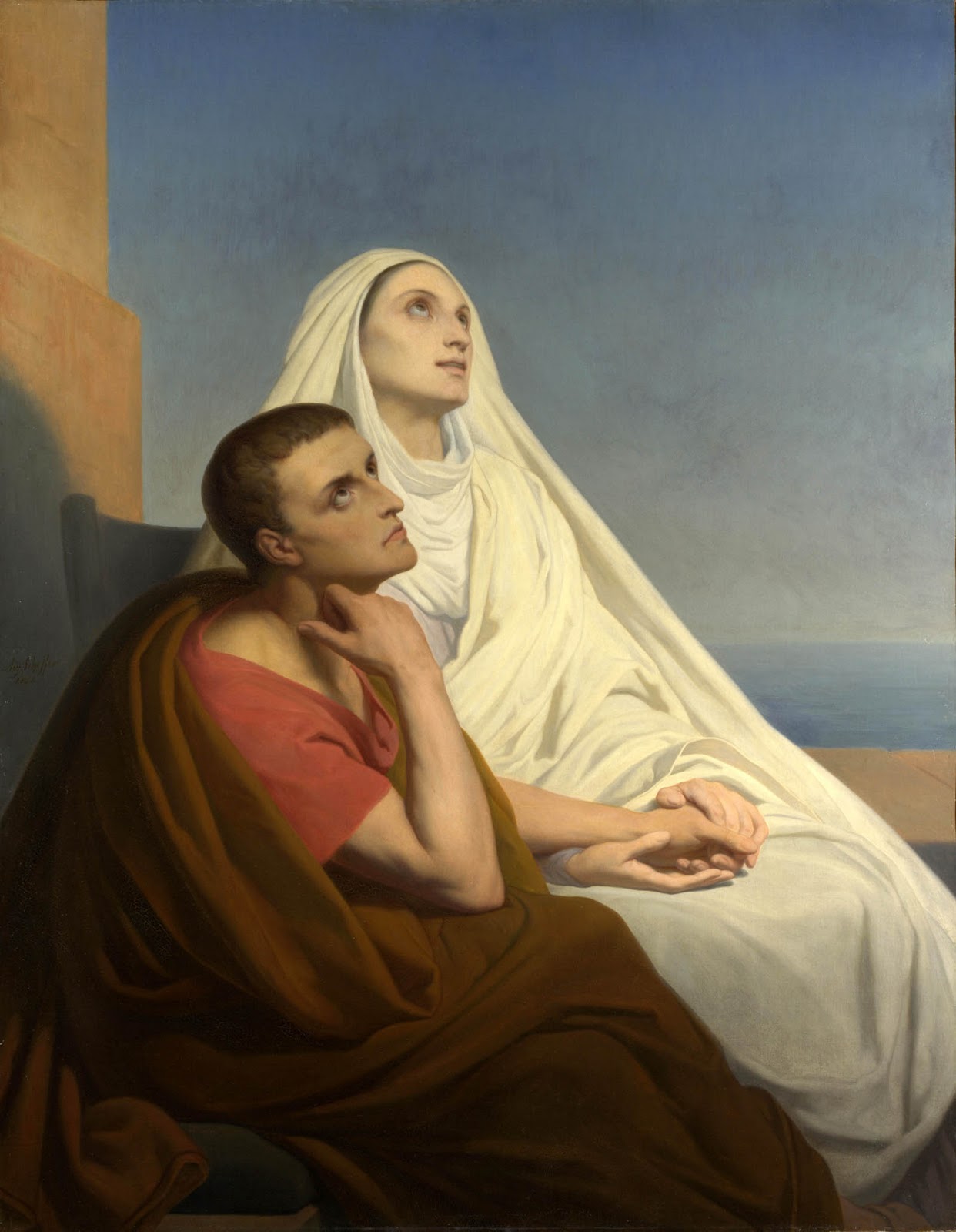One of the greatest and
most influential theologians of the early church was Augustine (354-430 AD).
His writings on The City of God and The Confessions remain to this day as
Christian classics. But Augustine’s
early life gave no indication he was to become such a strong voice of faith.
Were in not for the intervention and persistent prayer of his mother, Monica,
then Augustine could have been forever lost to the world. Like so many faithful
mothers today, Monica was the major Christian influence in his life.
However, Augustine spurned
his mother’s teaching and godly direction at a young age. He writes in his Confessions about his propensity of
stealing pears from farmer’s grove just for the thrill of doing evil. One day,
to the heartbreak of his mother, he announced that he was throwing off her
faith in Christ to peruse the hedonism and heresies of the day.
At the age of 16 in the
year 371, Augustine sneaked away from his mother in Carthage. During the night
he sailed away to Rome, leaving her alone to her tears and her prayers. He
lived with a woman not his wife and fathered an illegitimate child. Augustine
also committed to the cultic religion of the Manichaeans (a religious sect from
Persia which taught a form of dualism that promised salvation from this evil
world through the acquisition of “secret knowledge”).
Desperate over his prodigal
lifestyle, Monica begged a bishop, a man deeply read in the Scriptures, to
speak with her son and refute his errors. But Augustine’s reputation as a powerful
orator and thinker was so great that the holy man dared not try to compete with
such a vigorous jouster. But Monica pressed him with many tear-filled pleas. At
last the bishop, annoyed by her persistence and moved by her tears, answered
with a roughness mingled with kindness and compassion, “Go, go! Leave me alone.
Live on as you are living. It is not possible that the son of such tears should
be lost.”

Monica continued to pray
for her derelict son. By the year 386 Augustine obtained a prestigious teaching
position in Milan, however he was inwardly destitute. His playboy promiscuity had
left him miserable. One day he sat weeping in a garden, distraught over his wretched
lifestyle. He was almost persuaded to begin a new life, but lacked the final
resolution to break with his pet sins. As he sat, he heard a child singing in
Latin from a neighboring house, “Tolle, lege! Tolle, lege!” (“Take up and read!
Take up and read!”) Augustine thought to
himself that these were strange words indeed for a child to be singing at play,
and so he took them as from the Lord.
Picking up a scroll of the
New Testament which belonged to his friend, he let his eyes rest on the words:
“. . . not in revelry and drunkenness, not in lewdness and lust, not in strife
and envy. But put on the Lord Jesus Christ, and make no provision for the
flesh, to fulfill its lusts.” (Rom 13:13-14). “No further would I read,” Augustine
wrote later, “nor had I any need; instantly at the end of this sentence, a
clear light flooded my heart and all the darkness of doubt vanished away.”
Augustine could no longer
outrun his mother’s prayers. When he announced to his mother his decision to
turn to Christ, she was obviously overjoyed. As we know, Augustine would go on to more than
fulfill all his godly mother's hopes and prayers, becoming a bishop and a
defender of the truth. Having come home at last, this prodigal would help build
a house of faith that stands to this day. In the words of the British journalist
Malcolm Muggeridge, “Thanks largely to Augustine, the light of the New Testament
did not go out with Rome’s but remained amidst the debris of the fallen empire
to light the way to another civilization, Christendom.”[1]
As for Monica, her work on
earth was done. Shortly after Augustine's conversion, she announced to him that
she had nothing left to live for, now that she had achieved her lifelong quest
of seeing him come to faith in Christ. Just nine days later, she died.
Augustine was only 33 years old. In his Confessions
Augustine spoke of his grief and weeping for the mother “now gone from my
sight, who for years had wept over me, that I might live in God’s sight.”[2]
Thank God for praying
mothers. They have turned back many prodigal sons and daughters from the fires
of hell back to the safety of home. As Abraham Lincoln would write, “I remember
my mother’s prayers and they have always followed me. They have clung to me all
my life.” -DM
[1]
Diane Severance, “Augustine Couldn’t Outrun Mother’s Prayers,” <http://www.christianity.com/church/church-history/timeline/301-600/augustine-couldnt-outrun-mothers-prayers-11629656.html>
[2]
Ruth Bell Graham, Prodigals and Those Who
Love Them, (Colorado Springs: Focus on the Family Publishing, 1991), 3-11.
No comments:
Post a Comment